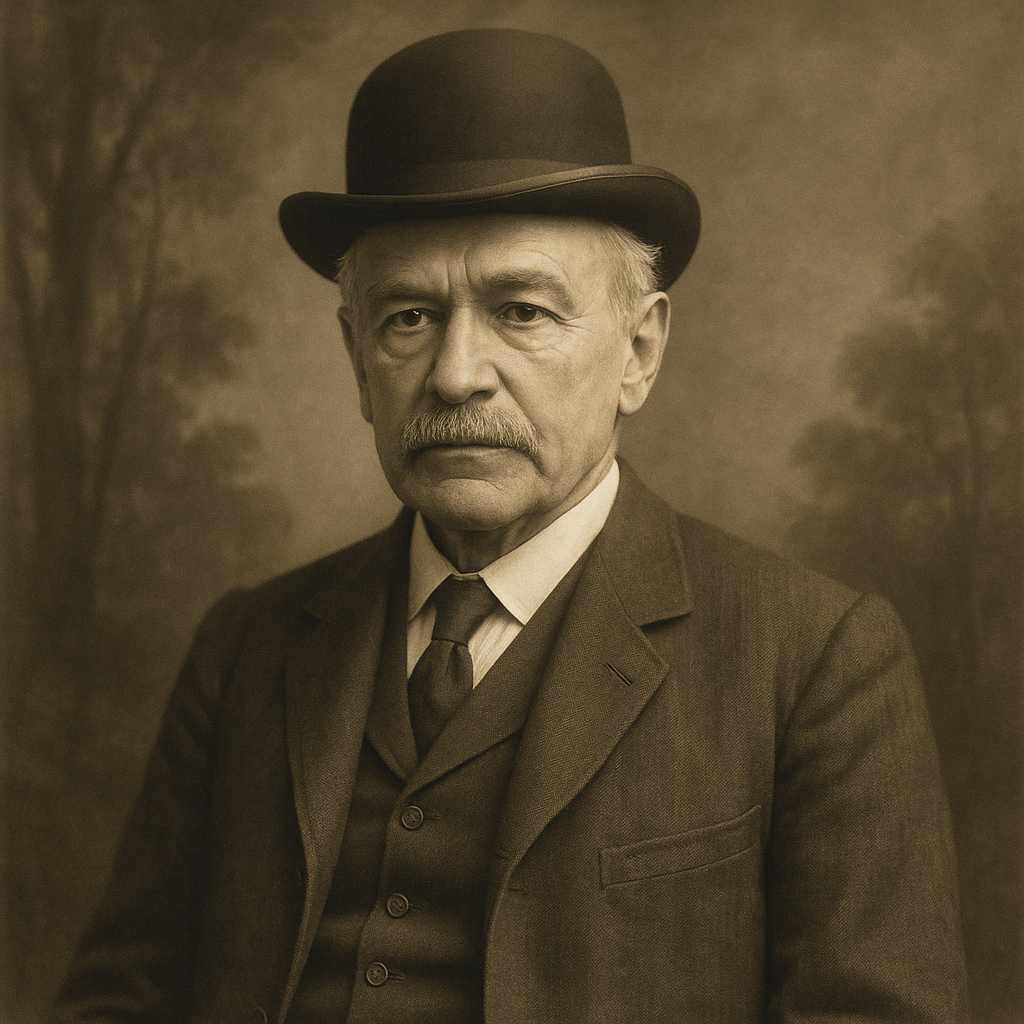Desiderata
Max Ehrmann
1872 to 1945

Go placidly amid the noise and the haste, and remember what peace there may be in silence. As far as possible, without surrender, be on good terms with all persons.
Speak your truth quietly and clearly; and listen to others, even to the dull and the ignorant; they too have their story.
Avoid loud and aggressive persons; they are vexatious to the spirit. If you compare yourself with others, you may become vain or bitter, for always there will be greater and lesser persons than yourself.
Enjoy your achievements as well as your plans. Keep interested in your own career, however humble; it is a real possession in the changing fortunes of time.
Exercise caution in your business affairs, for the world is full of trickery. But let this not blind you to what virtue there is; many persons strive for high ideals, and everywhere life is full of heroism.
Be yourself. Especially do not feign affection. Neither be cynical about love; for in the face of all aridity and disenchantment, it is as perennial as the grass.
Take kindly the counsel of the years, gracefully surrendering the things of youth.
Nurture strength of spirit to shield you in sudden misfortune. But do not distress yourself with dark imaginings. Many fears are born of fatigue and loneliness.
Beyond a wholesome discipline, be gentle with yourself. You are a child of the universe no less than the trees and the stars; you have a right to be here.
And whether or not it is clear to you, no doubt the universe is unfolding as it should. Therefore be at peace with God, whatever you conceive Him to be. And whatever your labors and aspirations, in the noisy confusion of life, keep peace in your soul. With all its sham, drudgery and broken dreams, it is still a beautiful world. Be cheerful. Strive to be happy.
Max Ehrmann's Desiderata
Max Ehrmann's poem "Desiderata" is a profound meditation on living a fulfilling and balanced life, offering guidance on navigating the complexities of human existence. Written in 1927, the poem has since become a cultural touchstone, admired for its timeless wisdom and accessible prose style. Through a series of gentle imperatives, Ehrmann constructs a philosophical framework for personal conduct and inner peace that resonates across generations.
The poem opens with a call for tranquility amidst the chaos of modern life: "Go placidly amid the noise and the haste, and remember what peace there may be in silence." This juxtaposition of turbulence and calm establishes a central theme of the work: the importance of maintaining inner equilibrium in a world of constant stimulation. The phrase "without surrender" in the following line suggests that this serenity should not come at the cost of one's principles or autonomy.
Ehrmann places great emphasis on interpersonal relationships and communication. The advice to "be on good terms with all persons" and to "speak your truth quietly and clearly" promotes a spirit of universal respect and authenticity. The poet's instruction to listen even to "the dull and the ignorant" reflects a deeply humanistic outlook, recognizing the inherent value of every individual's experience.
The poem cautions against several pitfalls of human nature. The warning to "avoid loud and aggressive persons" speaks to the importance of choosing one's company wisely, while the admonition against excessive comparison with others addresses the destructive potential of envy and pride. Ehrmann's perspective on achievement is notably balanced, encouraging readers to "enjoy your achievements as well as your plans," thus finding satisfaction in both the present and future.
In addressing career and business, the poem strikes a pragmatic tone. The advice to "keep interested in your own career, however humble" acknowledges the dignity of all honest work, while the caution regarding "trickery" in business affairs reflects a clear-eyed view of human nature. However, Ehrmann is careful to temper this wariness with optimism, reminding the reader that "everywhere life is full of heroism."
The poem's treatment of love and authenticity is particularly poignant. The exhortation to "be yourself" and to avoid feigning affection speaks to the value of genuine self-expression. The metaphor of love as "perennial as the grass" beautifully captures its enduring nature, persisting even in the face of life's hardships.
Ehrmann's perspective on aging is both realistic and compassionate. The phrase "take kindly the counsel of the years" suggests an openness to the wisdom that comes with experience, while "gracefully surrendering the things of youth" acknowledges the inevitability of change. This acceptance of life's seasons is a recurring motif throughout the poem.
The poem also addresses the psychological challenges of human existence. The advice to "nurture strength of spirit" recognizes the importance of resilience, while the warning against "dark imaginings" demonstrates an awareness of how negative thought patterns can impact well-being. The observation that "many fears are born of fatigue and loneliness" offers a compassionate explanation for human anxiety, implying that self-care and connection are antidotes to fear.
One of the most striking aspects of "Desiderata" is its cosmic perspective. The line "You are a child of the universe no less than the trees and the stars; you have a right to be here" places the individual within a vast, interconnected whole. This sentiment combats feelings of insignificance or alienation, asserting the inherent worth of every person.
The poem's conclusion is a masterful synthesis of realism and hope. Acknowledging life's "sham, drudgery and broken dreams," Ehrmann nonetheless affirms that "it is still a beautiful world." The final imperative to "be cheerful" and "strive to be happy" encapsulates the poem's fundamental message: that despite life's challenges, one can choose to embrace joy and seek fulfillment.
Stylistically, "Desiderata" is notable for its use of direct address and imperative mood, creating an intimate tone that speaks directly to the reader. The language is clear and accessible, avoiding ornate metaphors in favor of straightforward wisdom. This simplicity contributes to the poem's universal appeal and memorability.
In conclusion, "Desiderata" stands as a remarkable distillation of life philosophy, offering a roadmap for navigating the complexities of human existence. Its enduring popularity speaks to its ability to address fundamental human concerns in a way that transcends cultural and temporal boundaries. By balancing pragmatism with optimism, and personal responsibility with cosmic interconnectedness, Ehrmann has created a work that continues to offer solace and guidance to readers seeking a path through life's challenges.
This text was generated by AI and is for reference only. Learn more
Want to join the discussion? Reopen or create a unique username to comment. No personal details required!



Comments
No comments yet. Be the first to comment!